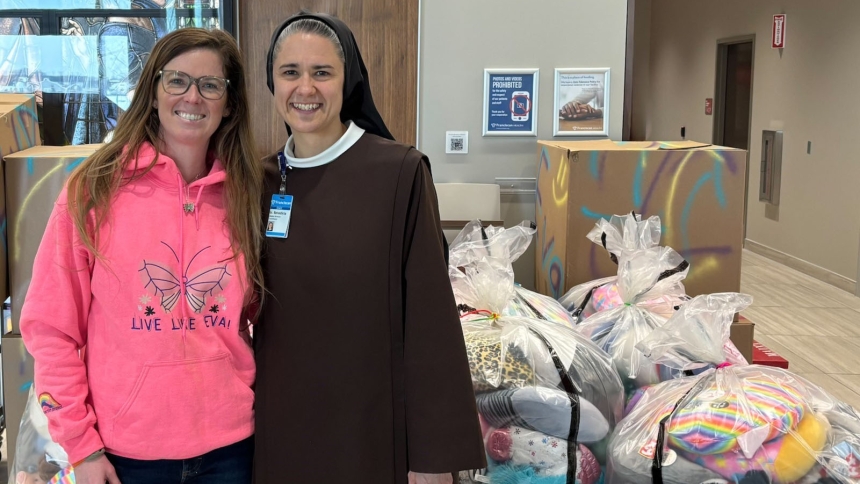
As published in the Northwest Indiana Catholic on February 28, 2016
Pope Francis has encouraged all of us to celebrate the sacrament of reconciliation more frequently during this Year of Mercy. This sacrament is a profound experience of healing, forgiveness and liberation in which the Lord frees us of our sins and calls us to deeper conversion. Reconciliation is at the very heart of our faith, for the Lord Jesus’ fundamental mission is to reconcile us to the Father, to one another and to our truest deepest selves.
He accomplishes this reconciliation in three essential ways.
Through the Incarnation, by assuming our flesh, Jesus unites the fullness of God’s divinity with the fullness of our humanity. In his very person, the Lord is already healing the chasm between God and us that sin creates. In his ministry, Jesus eats with sinners, lets prostitutes anoint his feet, proclaims mercy to the lost and heals those marginalized by sickness and disease. Finally, in his death and resurrection, the Lord definitively breaks the power of sin and death, creating a path for us to journey to the Father’s house, free from the power of fear and evil.
Baptism is the primary sacrament of reconciliation which joins us to the life of the Trinity and washes our sins away in the waters made holy by the Paschal Mystery of Christ and the presence of the Spirit.
The sacrament of reconciliation renews us in that baptismal innocence, freeing us to begin again on the road to conversion. I try to celebrate the sacrament of reconciliation once a month because the experience of sacramental forgiveness renews and strengthens my faith, frees me of my sins, and calls me to deeper conversion and sincere effort to be holy as God is holy.
Many Catholics do not regularly celebrate the sacrament, perhaps because of negative experiences from the past, a reluctance to speak of one’s failures and sins to another, lack of catechesis and formation or simply a perception that it is unnecessary to go to confession. Experiencing the dynamic of the sacrament from both sides of the confessional screen, I personally testify that regular sacramental reconciliation is one of the best practices we can embrace to find peace, joy, love, mercy and forgiveness.
In John Chapter 20, Jesus appears to the apostles on Easter Sunday night through locked doors, wishing them peace, breathing the Holy Spirit on them and commissioning them to go forth and proclaim forgiveness with authority to absolve sins in his name. Seemingly, Jesus could not wait to come back from the dead in order to share with everyone the reconciling fruits of his death and resurrection. Both this Scripture passage and the practice of the Church from the beginning teach us that reconciliation in Christ is a communal experience, that Jesus loves and forgives us most profoundly through the mediating power of the Church. So, even if I am confessing privately to a priest, I am doing so in with the whole community, because the priest represents both Christ and the Church.
Growing up in a family of six boys, my parents had some basic rules to survive our childhood, one of which was to not throw things in the living room. One day, when I was about four, I was watching television and minding my own business when one of my brothers came into the room, threw a ball to me which I instinctively threw back. It hit and smashed one of my mother’s porcelain vases, which shattered into dozens of pieces. At that age, I had not read the book of Genesis yet, but I immediately did what Adam and Eve did after they sinned; I ran upstairs and hid under my bed. When my mother confronted me with the deed, I then imitated Adam perfectly by pointing the finger at my brother as the true culprit!
I share that childhood memory because it teaches me some very important things. When I disobey God, refuse to listen to him and move away from our relationship, life shatters into pieces, like my mother’s vase. We live in a world of such violence, rage, conflict and hatred. Our lives often feel like a jumble of broken pieces that we are trying to put back together.
The good news of Jesus’ reconciling mercy is that we can’t fix it alone and we don’t even have to try. The Lord wants to do it in us. That’s where the sacraments come in. I also learned that our human, instinctive response to moments of moral failure is to hide from God and pass blame to others.
Reconciliation calls me from the darkness into the light and invites me to claim my own sin, not to shame or humiliate me, but to free me from guilt, sadness and fear.
If you regularly celebrate the sacrament of reconciliation, you know how healing the experience is, spiritually, psychologically and emotionally. If you don’t regularly confess, I invite you to try it, once a month for a year. Then take an assessment. Ask yourself if you are more peaceful and joyful.
Does the loving and merciful presence of God seem more real and close? Have you grown in your mastery over habitual sins, negative attitudes and spiritual malaise? In this powerful sacrament, the Lord gives us extraordinary graces to grow in our love for the Lord and let him heal the broken pieces of our lives and world. Try it. You will come to love confession. Christ is waiting for us with open, merciful arms.
+ Donald J. Hying


